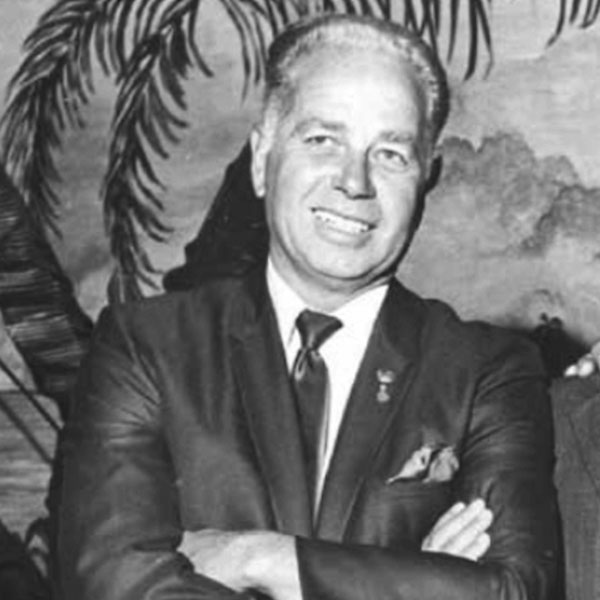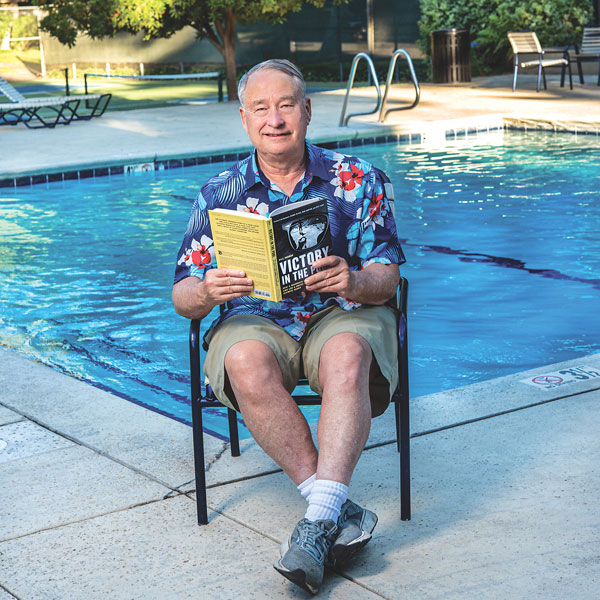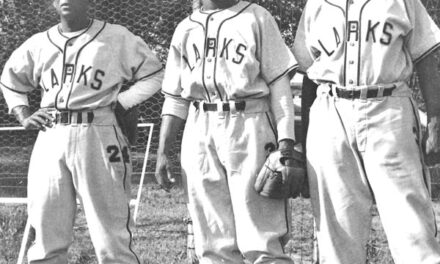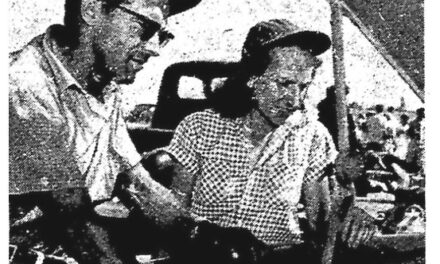The greatest coach in Sacramento history invented himself in 1944. He was 25 and serving in the Army Air Corps. He walked into a courthouse in Los Angeles, filled out a name-change petition, and with a judge’s permission, became Sherman Chavoor.
Gone forever was Izikiel Correa, the Portuguese kid from Hawaii. Gone was the link to Guilhermo Correa, his abusive father who worked cane fields around Hilo and loaded freighters on Oakland docks. Gone were insults, insecurities and poverty.
There was a real Sherman Chavoor. He was a UCLA football star in the 1930s, honored for courage and sportsmanship. He became a teacher, football coach and high school principal in Burbank. When Izzy chose an identity to steal, he chose well.
Nobody knows how Izzy Correa learned about the real Sherm Chavoor. This we know: In 1940, Izzy claimed to attend UCLA. He called himself Sherm and pocketed Chavoor’s biography.
Izzy tacked five years onto his age to match the real Chavoor. He told everyone he was a UCLA football star of Dutch and French lineage. The transformation was seamless.
Years later the fabrications were exposed. But the frauds continued. UCLA became Berkeley. Football heroics became a master’s degree in psychology. Facts blended with fantasy. That was Sacramento’s greatest coach.
Even now, three decades after his death, the insistence on deception is the biggest mystery of Sherm Chavoor. He was a great man with no reason to lie.


His achievements as a swim teacher are legendary and unsurpassed. He was a two-time U.S. women’s Olympic coach, the force behind Debbie Meyer, Mark Spitz, Mike Burton, Jeff Float and Sue Pedersen, gold medalists all. His athletes won 33 Olympic medals, 22 gold.
His business talents were almost as grand. He started with nothing, borrowed $25,000 and bought 10 acres on Mission Avenue. He built a swim and tennis club that would become Arden Hills, the region’s fanciest “wellness resort.” He was worth millions when he died from cancer in 1992 at age 73.
Now journalist Bill George returns Chavoor to a place of prominence with the book “Victory in the Pool: How a Maverick Coach Upended Society and Led a Group of Young Swimmers to Olympic Glory.” It’s a Sacramento story.
George draws perceptive descriptions of the town in the 1960s, sunny and optimistic, not dominated by state government but rich with agriculture and military bases and aerospace and railroads and new suburbs and lots of children, some of whom love to swim.
The heft of George’s research focuses on Chavoor’s victories in the 1968 Mexico City Olympics and the triumphant and tragic 1972 Munich Games. We learn what the kids ate and how they managed global competition and fame.
Chavoor was always nearby to provide technical advice, insults and encouragement. When Spitz won seven gold medals in Munich, Chavoor secretly negotiated the swimmer’s first endorsement deals. Chavoor sneaked Spitz back to California after Palestinian terrorists murdered 11 Israeli athletes and coaches.
George digs through archives and brings context to familiar stories. He tracks down many of Chavoor’s swimmers decades after their victories.
But the demons that drove Chavoor, the shame that made him change his identity and adopt a football star’s biography, the motivations that kept him working with petulant swimmers and their demanding parents, are elusive.
George chased Chavoor’s ghost for three years but didn’t find every answer. He interviewed Chavoor’s daughters, two proud and successful women. They couldn’t explain why their father shoplifted a name, stole a backstory and invented new details throughout his life.
“The family had a couple of stories, but nothing definitive,” George says. “He admired the real Sherm Chavoor. He obviously didn’t like where he came from and he recreated himself. He was going to be who he wanted to be, no matter what.”
The real Sherm Chavoor died in 2008 at age 93. The only public comment he made about the man who took his identity came in a letter to the Los Angeles Times. He wrote, “I am not a swim coach of any kind.”
“Victory in the Pool” is available from Amazon and other book sellers, retail $36.
R.E. Graswich can be reached at regraswich@icloud.com. Follow us on Facebook, Twitter and Instagram: @insidesacramento.















